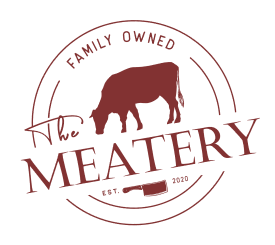Breed and Lineage of Tajima Cattle
Kobe beef, renowned globally for its exquisite marbling and unparalleled flavor, exclusively comes from Tajima cattle, a unique strain of Japanese Black (Kuroge Washu) cattle. Tracing their lineage back more than 2,000 years, these cattle originated from Japan's Hyogo Prefecture, specifically Kobe city, lending its prestigious name to this delicacy.
Tajima cattle possess a distinctly compact physique, differentiating them from other Wagyu varieties. This smaller stature significantly contributes to the meat's extraordinary quality. Historically bred and raised in isolation, Tajima cattle developed a unique genetic profile that encourages rich intramuscular fat deposition—known as marbling—setting Kobe beef apart from all other beef types.
These cattle produce soft fat with an exceptionally low melting point of about 77°F (25°C), notably below human body temperature. Consequently, Kobe beef’s famous buttery texture melts effortlessly in the mouth, providing a truly incomparable culinary experience.
Historically utilized as draft animals, Tajima cattle developed robust musculature while retaining their genetic capacity for marbling, creating the foundation for today's world-famous beef. Post-Meiji Restoration, beef consumption became commonplace in Japan, bringing global recognition to Tajima cattle’s exceptional meat quality.
Today, authentic Kobe beef must derive from purebred Tajima cattle born, raised, and slaughtered in Hyogo Prefecture under rigorous standards, verified through the Tajima Cattle Registry Association. This strict certification preserves the integrity and heritage of Kobe beef for future generations.
Kobe Beef Grading System
The Japan Meat Grading Association (JMGA) oversees the meticulous grading system ensuring Kobe beef’s superior quality. The system evaluates two primary components: yield and meat quality.
Yield Grade
Yield grade, rated from A (highest) to C, measures usable meat against total carcass weight. Authentic Kobe beef typically receives an A-grade, indicating exceptional yield.
Quality Grade
The quality grading, ranging from 1 to 5, assesses marbling (Beef Marbling Standard - BMS), meat color and brightness, texture and firmness, and fat quality. Kobe beef requires at least a BMS of 6; however, most premium cuts score between 10-12, highlighting the visually stunning marbling that Kobe beef enthusiasts admire.
Optimal Kobe beef showcases a bright cherry-red color (rated 3-5) with firm, fine-textured meat, and creamy white fat, scoring low on a 1-7 scale, signifying premium freshness and taste.
To earn the Kobe designation, beef must score at least an A4 or A5—only about 3,000 cattle annually achieve this prestigious classification, affirming Kobe beef’s rarity and value.
Grading and Certification
The stringent Kobe beef certification ensures product authenticity, safeguarding both its reputation and consumer trust. Only purebred Tajima cattle born, raised, and processed within Hyogo Prefecture qualify. The cattle must be either steers or virgin heifers, slaughtered in designated facilities.
Post-slaughter, each carcass undergoes JMGA grading. Top-scoring A4 or A5 beef then undergoes verification by the Kobe Beef Marketing & Distribution Promotion Association. Successful cuts receive a 10-digit identification number and a chrysanthemum emblem seal, assuring complete traceability.
Restaurants and retailers must display certification credentials, with fewer than 0.2% of Japan’s beef production meeting these stringent criteria annually.
Can You Get Kobe Beef Outside Japan?
Since 2012, genuine Kobe beef has been available internationally but remains scarce. Exported to approximately 20 countries, including the United States, Hong Kong, Singapore, and select European markets, authentic Kobe beef represents only about 10% of the already limited annual production.
Consumers seeking authentic Kobe beef abroad should verify restaurant or retailer certifications, which include official documentation and a unique 10-digit identification number for traceability. Be cautious of products labeled "Kobe-style," "American Kobe," or merely "Wagyu," as these often lack authenticity.
The official Kobe Beef Association maintains a directory of authorized international sellers, aiding informed purchasing decisions.
Kobe Beef in International Markets
Since lifting export restrictions, Kobe beef has influenced luxury dining globally, particularly in culinary hubs like the United States, Europe, and wealthy Asian nations. American cities such as New York, Las Vegas, and Los Angeles boast select establishments offering genuine Kobe beef, commanding prices of $40-$60 per ounce.
The Meatery is one of the few, certified carries of Kobe Beef, allowing you to enjoy steak excellence in the comfort of your home!
Kobe Beef vs. Wagyu
All Kobe beef is Wagyu, but only a fraction of Wagyu qualifies as Kobe beef. "Wagyu" encompasses four native Japanese breeds, predominantly Japanese Black cattle known for marbling excellence.
Kobe beef uniquely originates from Hyogo Prefecture’s Tajima strain, undergoing stringent raising and certification processes. While premium Wagyu varieties such as Matsusaka and Omi also offer high-quality alternatives, Kobe beef distinctly exhibits richer marbling, superior tenderness, and a nuanced, buttery flavor profile unmatched globally.
Check out The Meatery for more information on what each variation of wagyu brings to the table!
Is Kobe Beef Worth the Price?
With prices frequently exceeding $200 per serving, evaluating Kobe beef’s worth involves considering sensory delight, cultural heritage, and exclusivity. Its luxurious marbling, buttery texture, and nuanced flavors provide a gastronomically unique experience.
Beyond taste, enjoying Kobe beef connects diners to Japan’s meticulous culinary traditions. Although premium alternatives exist, the unparalleled sensory and cultural experience makes authentic Kobe beef a justifiable luxury for special occasions.
Why is Wagyu so Expensive?
Wagyu’s premium pricing derives from its intensive production process, genetic exclusivity, and limited availability. Wagyu cattle require extensive care, specialized diets, and significantly longer growth periods (30-36 months versus typical 15-18 months), inflating production costs.
Japan’s stringent protection of Wagyu genetics, limited cattle farming land, and smaller herd sizes prevent economies of scale, driving costs higher. Intensive marbling reduces yield efficiency, further escalating prices.
With only around 200,000 premium Wagyu cattle produced annually, demand far exceeds supply, justifying Wagyu’s luxury pricing in global markets.
Discover and savor authentic Kobe beef yourself—explore premium cuts available at The Meatery and experience Japan’s culinary treasure firsthand.










